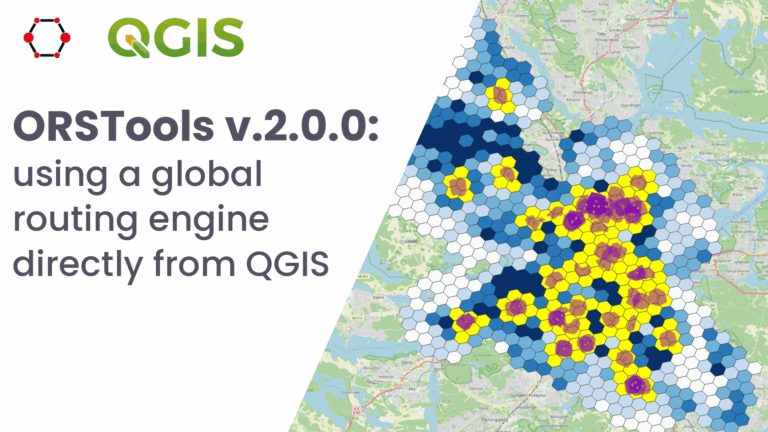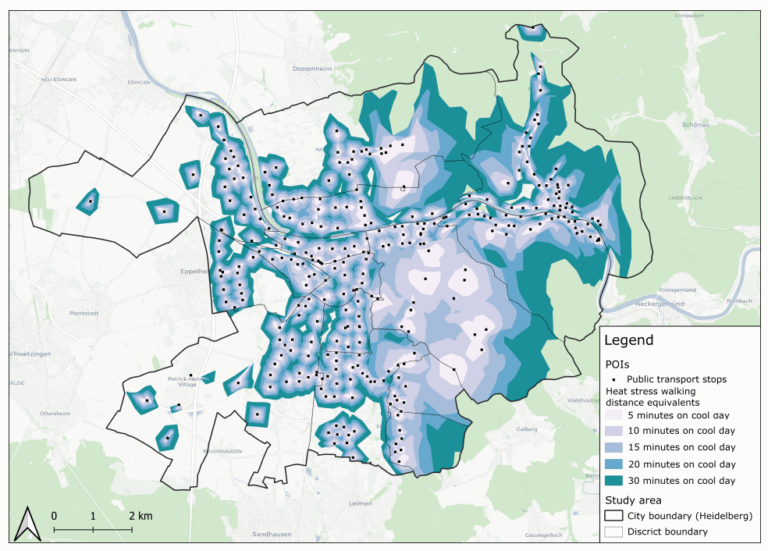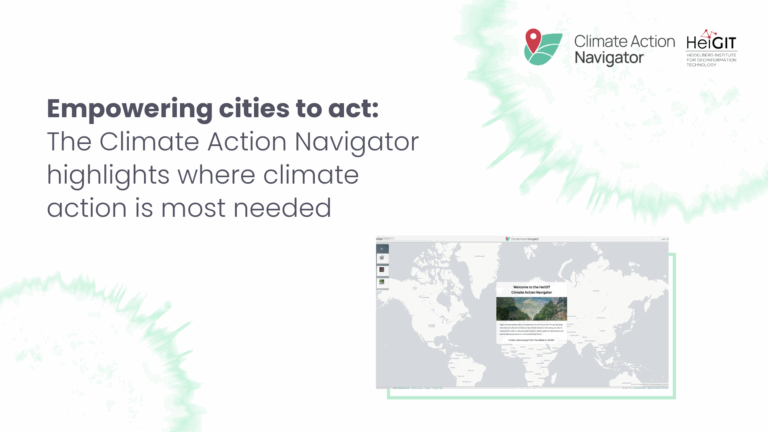Geoinformatics researchers from Heidelberg are helping to improved the usability of geocoded information through the project “SocialMedia2Traffic”.
Heidelberg 23rd of May, 2022. Navigation services require up-to-date traffic information in order to determine optimal routes and calculate the travel time. Open-source social media and OpenStreetMap data can now be used to accomplish this, due to the combined efforts of geoinformatics researchers from Heidelberg University and HeiGIT (Heidelberg Institute for Geoinformation Technology) which is being funded by the Klaus Tschira Foundation. The project, “SocialMedia2Traffic” integrates the data of eleven cities, including Berlin, London, and New York City into HeiGIT’s “openrouteservice” and is even able to derive the general traffic congestion depending on the time of day. The goal of this project is to improve routing and navigation services, especially in terms of calculating the exact time of arrival.
Through the use of machine learning techniques, the researchers led by Prof. Dr. Alexander Zipf, professor of geoinformatics at the Heidelberg University and the CEO of HeiGIT, are developing models over the span of a year that will use geocoded data from social media sites such as Twitter and the open-source mapping application OpenStreetMap as a basis to determine the overall speed of traffic on streets within a city. These models focusing on cities in particular will draw data from human activity by assessing the spatial density of tweets within the proximity of streets and use this data to extrapolate the associated flow of traffic. The resulting information will be provided to the public free of charge, contrary to other geodata that generally feeds other navigational services.
The researchers in question are using location data from over ten million tweets from January 2018 until March 2020 to calculate tweet density, and are simulating several thousand car rides per city based on the distribution of the population and OpenStreetMap data. Currently, the focus of the project lies on the refining the accuracy of the system and incorporating additional cities. In the future, this approach could also be used to integrate data from other social media networks in similar models.
“The system developed by us doesn’t just improve the accuracy of open-source navigational services. Location data from social media can be used to suggest routes for pedestrians and bicyclists away from heavy traffic, and even to generate maps of traffic-related CO2 emissions with high-spatial resolution”, Prof. Dr. Alexander Zipf explains.
The project “SocialMedia2Traffic” was funded within the scope of the innovation initiative mFUND of the federal ministry of digitalization and traffic. The results are visualized in an interactive web-based map and can be downloaded free of charge.
Information from the web:
Web-based map – https://sm2t.heigit.org
API – https://github.com/GIScience/socialmedia2traffic-api
Results of the study – www.mcloud.de
openrouteservice – https://openrouteservice.org
Department of Geoinformatics – www.geog.uni-heidelberg.de/gis/index.html
HeiGIT – https://heigit.org
Further information on the mFUND of the BMDV:
The BMDV has been funding and supporting data-based research and development projects through the innovation initiative mFUND for the digital and connected mobility of the future since 2016. This support is supplemented with an active, specialized network of stakeholders from the political, economic, administrative, and scientific community, and through the provision of open-source data on the portal mCLOUD. Further information can be found by visiting www.mFUND.de.
Further information on HeiGIT:
The aim of the Heidelberg Institute for Geoinformation Technology (HeiGIT) is to improve the transfer of knowledge and technology from basic geoinformatics research into practice by using innovative geoinformation technologies. It was founded in 2019 as an affiliated institute of Heidelberg University and has since then been core-funded by the Klaus Tschira Stiftung. The institute researches and develops intelligent routing and navigation services for sustainable mobility and provides geodata for humanitarian missions. In addition, innovative services from the research areas spatial data mining and machine learning are used to analyze, process, enrich and visualize user-generated geodata (e.g. OpenStreetMap). Further information can be found by visiting: https://heigit.org
Contact:
Prof. Dr. Alexander Zipf
Institute of Geography & HeiGIT
Phone (06221) 54-5533






